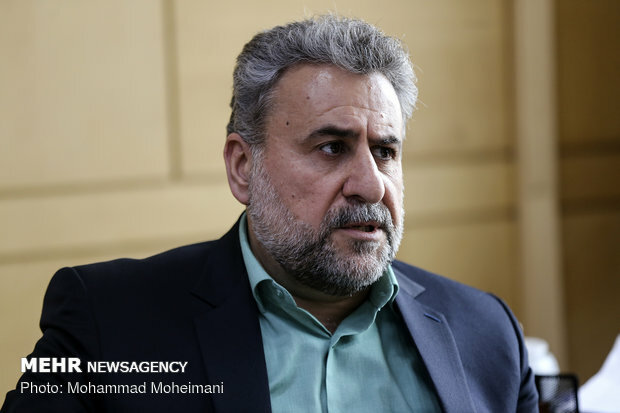Iran to continue tit-for-tat policy under NPT, JCPOA: top MP

TEHRAN – A top Iranian lawmaker said on Wednesday that Iran is not after pulling out of the nuclear deal, but will continue to adopt a tit-for-tat policy in response to the other sides’ lack of commitment to the deal.
Heshmatollah Falahatpisheh, chairman of the Majlis National Security and Foreign Policy Committee, said the nuclear accord, also known as the Joint Comprehensive Plan of Action (JCPOA), is a comprehensive document which says if a country doesn’t fulfill its commitments, others can take countermeasures, Mehr reported.
Falahatpisheh also said Iran will enter into “serious” technical negotiations with the International Atomic Energy Agency (IAEA) and the remaining signatories of the JCPOA to “produce our required [nuclear] fuel at different degrees.”
He reiterated that pulling out of JCPOA and NPT is not on the agenda.
President Hassan Rouhani declared on Wednesday that Iran would stop selling stockpiles of enriched uranium and heavy water for 60 days.
The announcement by Rouhani came exactly a year after President Trump withdrew entirely from the 2015 agreement and announced sanctions on Iran.
Rouhani notified European nations that he would give Europe 60 days to choose between following U.S. President Donald Trump or saving the deal by engaging in oil trade with Iran in violation of American unilateral sanctions.
If the Europeans fail to compensate for the unilateral American sanctions, he said, Iran will resume construction of the Arak nuclear reactor.
Following Rouhani’s announcement, other top officials and lawmakers made similar remarks and voiced their support for the move.
Alaeddin Boroujerdi, former chairman of the Majlis National Security and Foreign Policy Committee, advised European powers to pay attention to Iran’s 60-day deadline.
He described Iran’s decision as a “reasonable” one, adding that the JCPOA was written for a two-way road, under which Iran accepted to put some restrictions on its nuclear activities in exchange for termination of sanctions.
Under the current circumstances, Iran is entitled to react to U.S. measures with regard to the JCPOA, he said.
“There is no reason for us to halt nuclear enrichment while Trump tries to persuade other countries to stop purchasing heavy water from us,” he added.
Boroujerdi said exiting the NPT and making atomic weapons, which has been banned under a Fatwa by Leader of the Islamic Revolution Ayatolllah Ali Khamenei, are a red line for Iran.
Other than these two, he continued, “we are allowed to do anything as long as the other side is not fulfilling its commitments.”
Pro-reform MP Mohammad Reza Tabesh says, “Exiting Barjam (JCPOA) and the NPT are on the table, and if necessary and after thorough cost-benefit analysis we will make a decision."“Europeans want us to fulfill our commitments but when they themselves fail to fulfil theirs, they cannot expect us to act as they wish,” the lawmaker asserted.
‘Decisive and clever move’
Mohammad Reza Tabesh, deputy chairman of the pro-reform Hope faction in parliament, said the 60-day deadline was a “decisive” and “clever” move which aimed to secure Iran’s national interests.
Tabesh expressed the hope that other countries would comply with their commitments and help Iran play an active role on the world stage, ISNA reported.
Tabesh also said, “Exiting Barjam (JCPOA) and the NPT are on the table, and if necessary and after thorough cost-benefit analysis, we will make a decision.”
Hossein Naqavi Hosseini, a member of the national security and foreign policy committee, said Iran’s countermeasures will not be contrary to international law, the JCPOA and the NPT.
“Unfortunately the Americans have intensified pressure against us through sanctions, and accordingly, the Islamic Republic cannot remain calm from now on,” Naqavi Hosseini said.
He argued that exiting the nuclear pact “would not benefit us but we can take appropriate countermeasures.”
MH/PA
